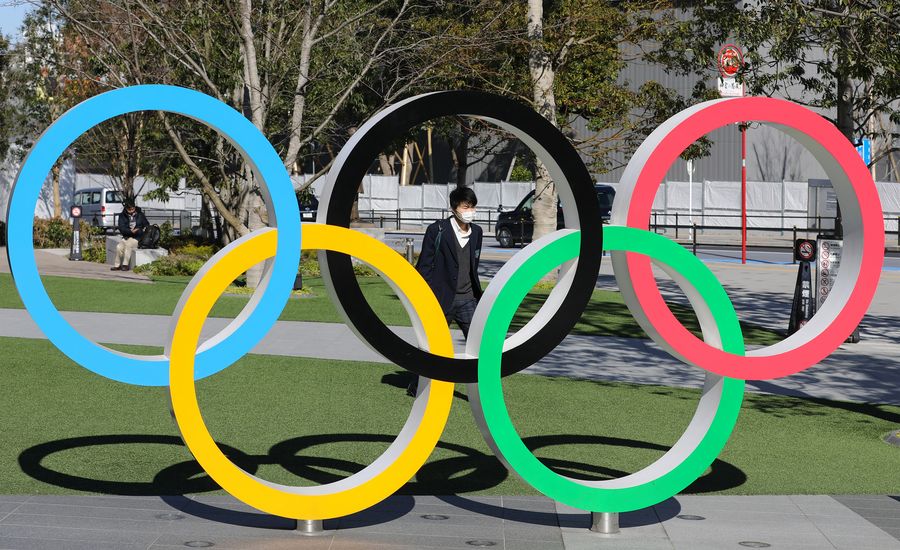
By Michael Pavitt |
The biggest surprise to me when writing yesterday that the Pyrenees-Barcelona bid for the 2030 Winter Olympic and Paralympic Games had been put on hold was that it had not been already.
The decision appeared to be because of the coronavirus pandemic, although Catalan officials also suggested there had been a “lack of leadership” from the Spanish Government.
Without wishing to read too deeply into the comment, the political situation would clearly be a key topic should the candidacy re-emerge again in the future.
The decision to halt the candidature is a wise one regardless, particularly with International Olympic Committee (IOC) member Juan Antonio Samaranch suggesting the awarding of Olympic Games has been placed on the back burner for the time being, with Tokyo 2020 and Beijing 2022 the focus amid the pandemic.
Queensland, the front-runner in the race to host the 2032 Olympics, placed its bid on hold because of the global health crisis earlier this year. India, another contender, also declared that its candidacy had been halted until at least December.
That is not to say the merits of a bid are not still being considered.
This was highlighted by Australian Olympic Committee chief executive Matt Carroll discussing the potential bid for the Olympic and Paralympic Games at an event held by the South East Queensland Council of Mayors on Friday.
Nonetheless, the pandemic provides some breathing space to think about what the Olympic Games should look like in the future and how the International Olympic Committee (IOC) should talk about the Games.
My colleague David Owen noted the IOC will need to articulate a convincing answer as to why the Games are held “every two/four years?”.
The IOC would undoubtedly point towards their cost cutting drives when anyone questions the Games.
We have had Agenda 2020, which became part of the Olympic Movement’s lexicon.
Subsequent reform efforts have earned the monikers the “New Norm” and the “Tokyo Model”, with the latter threatening to become a new phrase of choice among senior IOC officials.
As highlighted by my colleague Nancy Gillen, the “no frills” approach has been overdue in some areas and should be welcomed.
For instance, cuts in the number of officials attending, reductions in the “Olympic and Paralympic Family” hospitality lounges and increased use of public transportation are among positive measures due to be implemented.
Review of specifications of temporary overlays, including the potential reduction of decoration of venues around 30 to 40 per cent, was quite interesting.
If you remember, only last year the International Federations (IFs) effectively won a battle with Tokyo 2020 after taking them to task over the “look of the venues” at the Games.
The impact of the pandemic perhaps has lessened the expectations of the IFs, who I sense would take merely holding their events in Tokyo next year, rather than worrying about how attractive the venues look now.
Perhaps the reduction in expectations could be replicated and help achieve the so-called “Tokyo Model”.
However, Tokyo 2020 were forced to push back at suggestions a couple of months ago that the changes were minor, particularly when considering how the Games is expected to be even more costly due to the postponement to 2021.
Even in isolation, the reported $280 million (£217 million/€238 million) in savings from the 50 measures would amount to just over half of the $542 million (£415 million /€456 million) cost of the new Tokyo Aquatics Centre.
With the money largely having already been spent for Tokyo 2020, the focus perhaps should be on shaping the future.
I would suggest the halting of candidacies for the 2030 and 2032 Olympic Games offer the IOC the opportunity to have a deep think about how the Olympic Movement can emerge stronger from the pandemic.
Could a genuine reassessment of the Olympic programme be considered, potentially to ease the load on organisers and force genuine change for some federations?
For instance, I would argue the crisis in both boxing and weightlifting have effectively been allowed to drift in recent times because the Federations simply do not believe the IOC will remove them from the Olympic programme, with the IOC understandably keen not to impact innocent athletes who have trained their whole lives to compete at an upcoming Games.
With a decade until 2030, the IOC could arguably hold some IF’s feet to the fire in order to drive change by assessing the programme. This simply did not happen for Paris 2024, with the programme having been effectively waved through by the IOC membership back in 2017.
Given the submissive nature of the IOC membership, a renewed message or vision for the organisation will lie almost solely in the hands of Bach.
With Bach expected to be re-elected unopposed at the IOC Session in Athens in March, the German official has an opportunity to outline how the Olympic Movement could look in say Pyrenees-Barcelona in 2030 or Queensland in 2032.
Republished with permission from insidethegames.biz.